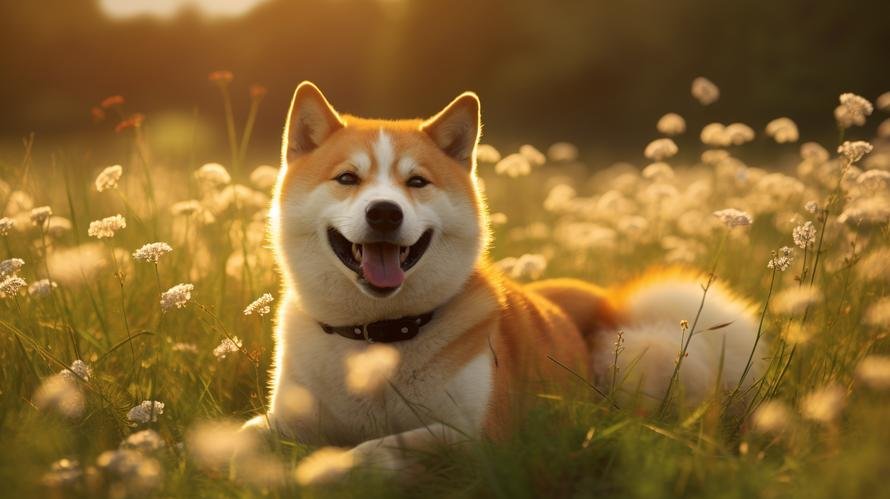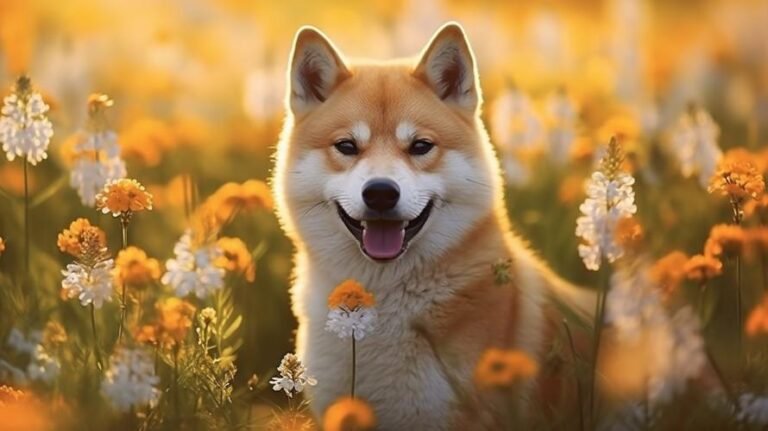When it comes to furry, four-legged friends, everyone has their favorite breed. For some, a lazy Basset Hound fits the bill, while others might prefer a feisty French Bulldog. For those of you who like your pooches large and character-filled however, one breed that often comes to mind is the Akita. You might be wondering, ‘Is an Akita a good family dog?’ Well, wonder no more! In this post, we’ll give you all the details about this breed, and by the end, you’ll know whether an Akita could be the perfect fit for your family.
First, a hint of something unique about this breed. Did you know that Helen Keller is actually credited with bringing the first Akita to the United States? After being gifted an Akita during a trip to Japan, Keller was won over by their loyalty and character. Today, this beautiful breed is recognized and loved worldwide.
Akitas are a large breed, generally weighing between 70 and 130 pounds, and they are known for their thick double coats and robust physique. But it’s not just their compelling looks that make them notable. They possess an array of characteristics which could make them an ideal family pet. Let’s delve into some of these traits, shall we?
Firstly, Akitas are renowned for their loyalty – they are known to form a strong bond with their family. This trait was made famous by Hachiko, an Akita who is celebrated for his unwavering devotion to his deceased owner. In fact, there is a statue of Hachiko in Tokyo which is a popular meeting point and tourist attraction. This deep loyalty means that once an Akita becomes part of your family, you will have a friend and protector for life.
Secondly, Akitas are generally calm, quiet, and dignified dogs. They are not known to bark excessively. While watchdogs by nature, they usually only alert their owners when necessary, rather than barking at every tiny movement. This makes them suitable for families living in relatively peaceful environments.
However, with these commendable traits, do come caveats. Akitas can be a bit aloof and reserved, especially with strangers. Their spirited and powerful nature requires confident handling and consistent training. Remember, early socialization is the key. It’s crucial to expose them to different people, environments, sights, and sounds during their formative weeks. It will help them to grow into a well-rounded dog and reduce any potential for overly assertive behavior.
Moreover, Akitas are incredibly active and energetic. They require regular exercise not just to keep fit but also to discharge mental energy. Be prepared to take them out on walks, regardless of how the day’s weather might look. A bored and restless Akita can develop destructive behaviors, such as chewing or digging. Therefore, a spacious home with a yard will be an advantage.
Regarding children, Akitas are known to get along well, especially when they grow up together. However, owing to their size and strength, supervision is necessary when they interact with smaller children.
A major consideration when adopting any pet is their health, and Akitas are no different. Akitas enjoy a relatively healthy breed status, but they are prone to certain conditions such as hip dysplasia, progressive retinal atrophy, and immune disorders. Regular vet check-ups and a balanced diet are key to addressing these health issues.
The last point to bear in mind is grooming. Akitas shed. A lot. The good news is, their coarse hair doesn’t embed itself into everything, making it relatively easy to clean up, but it does require regular brushing.
In conclusion, whether an Akita makes a good family dog or not largely depends on what you are looking for in a pet. With their loyalty, quiet demeanor, and dignified beauty, Akitas can definitely be a great fit. However, they’re best suited to families that can provide consistent training, ample exercise, and a good deal of attention. If you have the willingness to make the effort, an Akita will reward you with infinite loyalty, steadfast protection, and a unique companionship that you’ll treasure forever. Because, in the end, every dog breed has its quirks, and love means embracing them all.



